
Find Help
More Items From Ergsy search
-
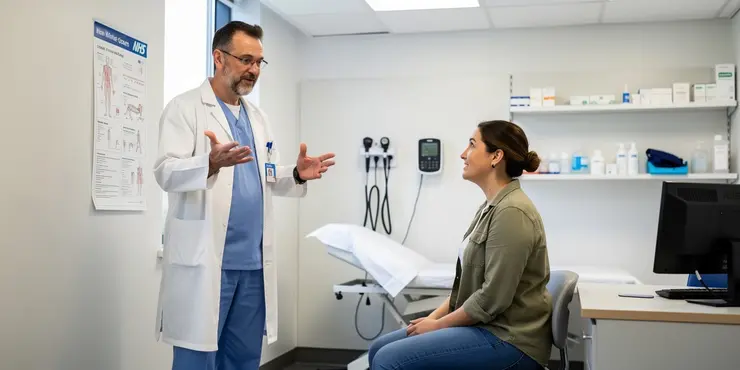
Are there treatments for West Nile Virus?
Relevance: 100%
-

What is West Nile Virus?
Relevance: 91%
-
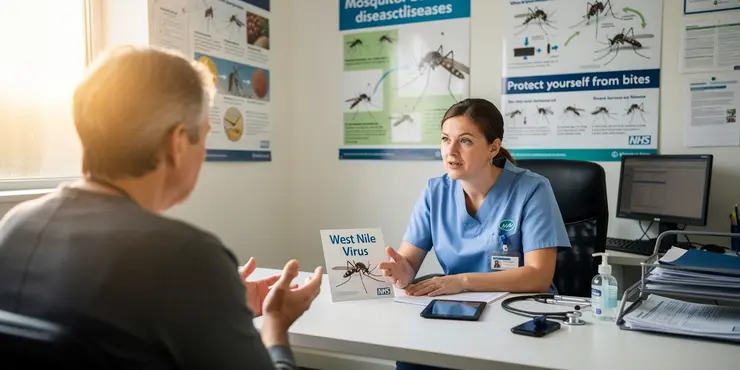
What is West Nile Virus?
Relevance: 89%
-

Is there a vaccine for West Nile Virus?
Relevance: 89%
-

Is there a test for West Nile Virus?
Relevance: 88%
-

Can pets get West Nile Virus?
Relevance: 85%
-
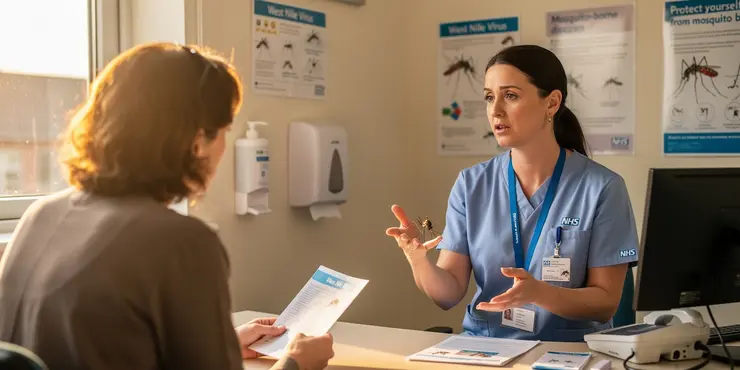
How is West Nile Virus transmitted?
Relevance: 85%
-
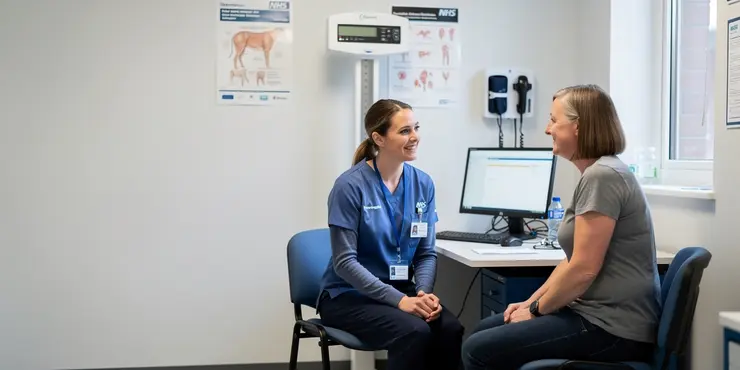
How prevalent is West Nile virus in the UK?
Relevance: 85%
-

What are the symptoms of West Nile Virus?
Relevance: 84%
-
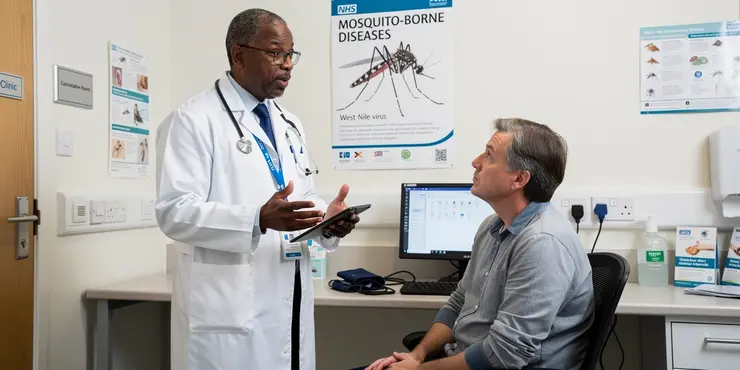
Which countries are affected by West Nile Virus?
Relevance: 83%
-

What should I do if I think I have West Nile Virus?
Relevance: 80%
-

Who is at risk for severe illness from West Nile Virus?
Relevance: 79%
-

How do health officials monitor West Nile Virus?
Relevance: 78%
-
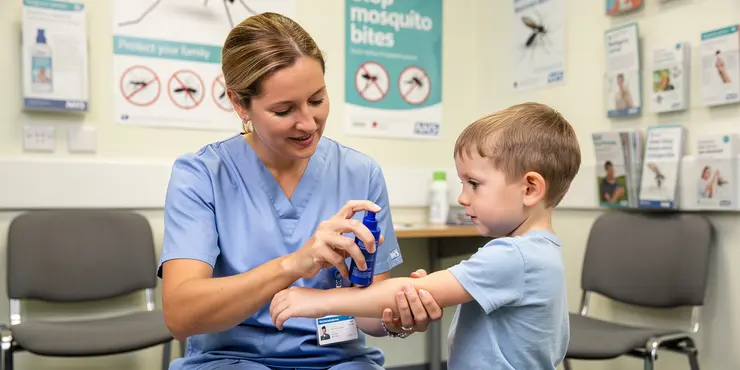
How can West Nile Virus be prevented?
Relevance: 56%
-

Can mosquitoes carrying West Nile Virus be controlled?
Relevance: 54%
-

Can you get West Nile Virus more than once?
Relevance: 52%
-
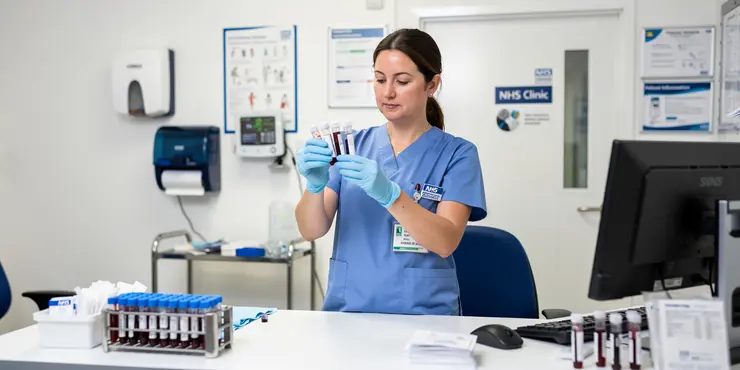
What other viruses are tested for in blood donations?
Relevance: 44%
-

Are UK mosquitoes capable of transmitting Zika virus?
Relevance: 39%
-

What diseases are spread by mosquitos in the UK in 2025?
Relevance: 36%
-

When is West Nile Virus most active?
Relevance: 36%
-
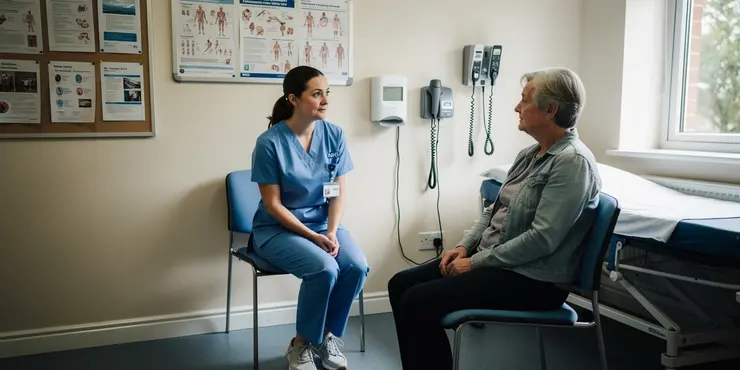
Is the Marburg virus related to the Ebola virus?
Relevance: 33%
-
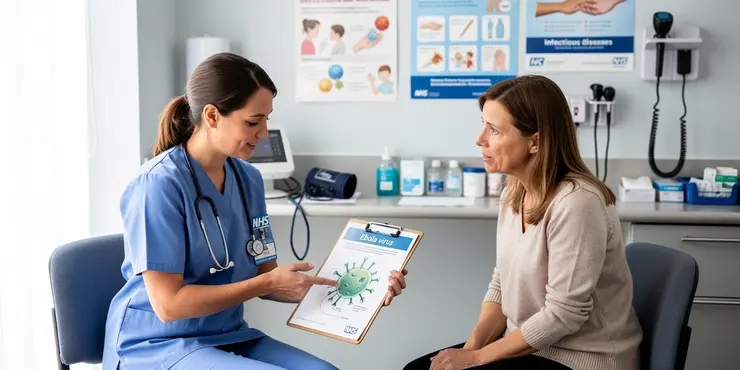
What is the Ebola virus?
Relevance: 31%
-

Can West Nile Virus be transmitted from person to person?
Relevance: 31%
-
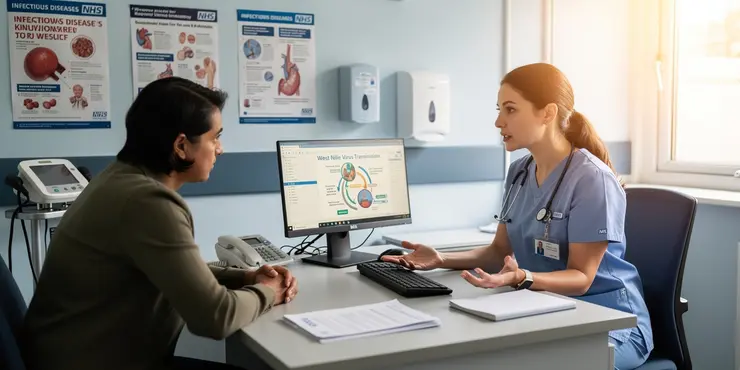
Can West Nile Virus spread through blood transfusions or organ transplants?
Relevance: 28%
-
Do all mosquitoes in the UK carry diseases?
Relevance: 27%
-
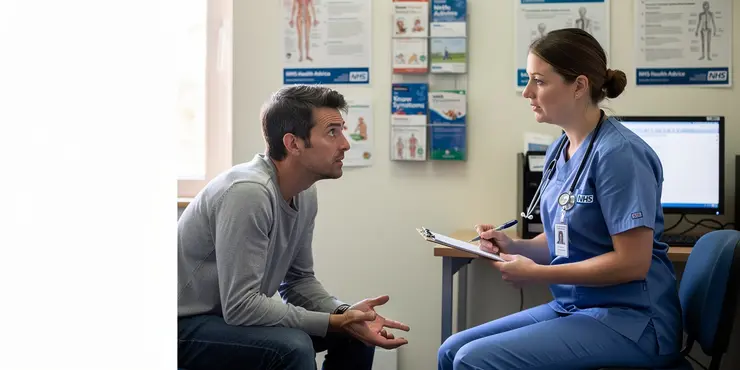
Is there a cure for Nipah Virus?
Relevance: 26%
-

What is the Marburg Virus?
Relevance: 25%
-

What is Nipah Virus?
Relevance: 24%
-
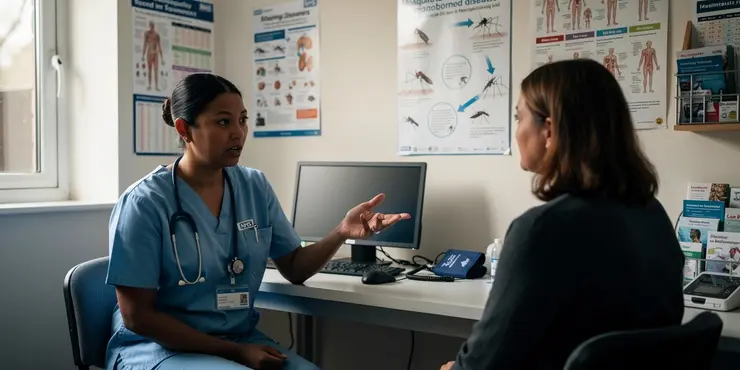
What regions of the UK are most affected by mosquito-borne diseases?
Relevance: 24%
-

What research is being done on the Marburg virus?
Relevance: 24%
-
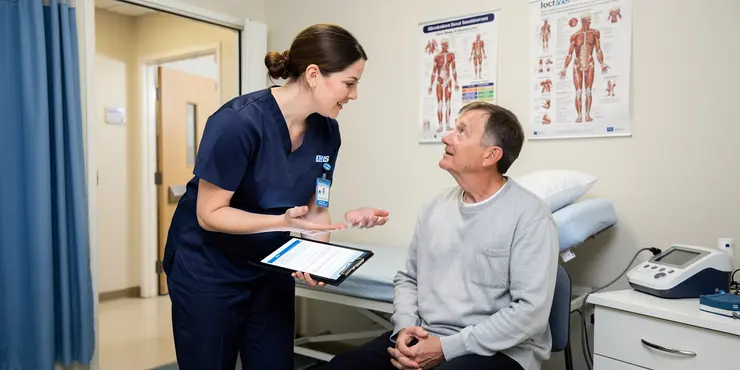
What are the symptoms of Zika virus?
Relevance: 23%
-
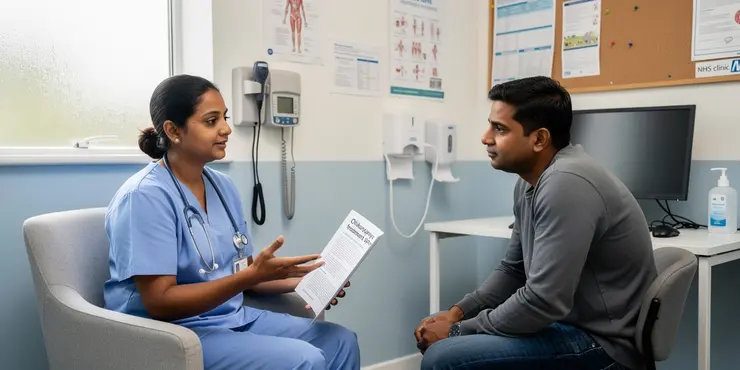
Can Chikungunya virus infection be treated?
Relevance: 23%
-
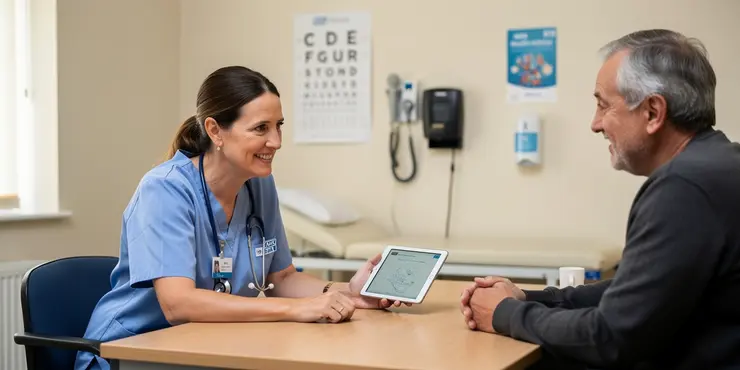
Can Nipah Virus cause outbreaks?
Relevance: 23%
-
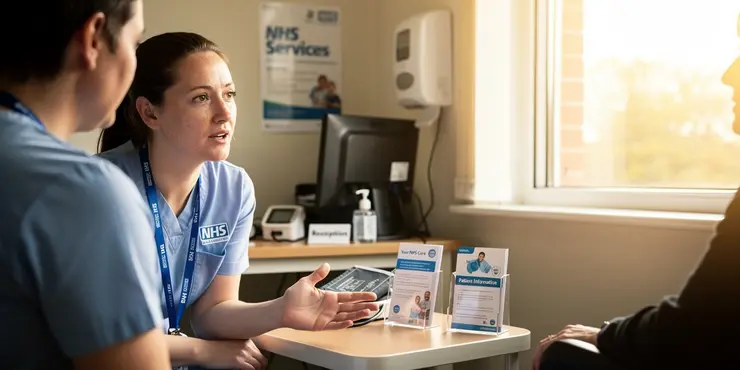
Can Marburg virus disease be prevented?
Relevance: 23%
-

How is Nipah Virus diagnosed?
Relevance: 23%
-

What is Chikungunya virus infection?
Relevance: 23%
-

What is the mortality rate of Nipah Virus infection?
Relevance: 22%
-
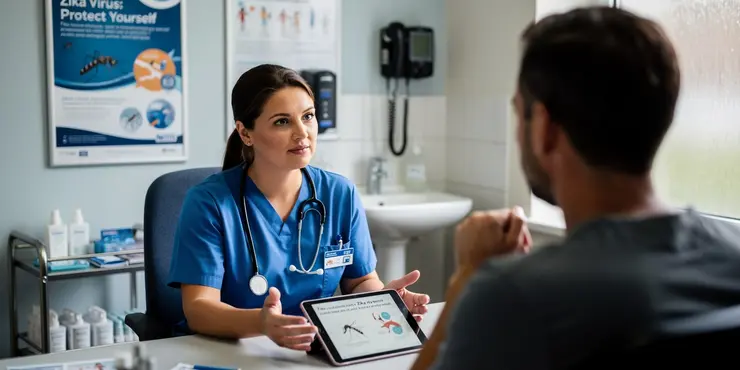
Is Zika virus present in the UK?
Relevance: 22%
-
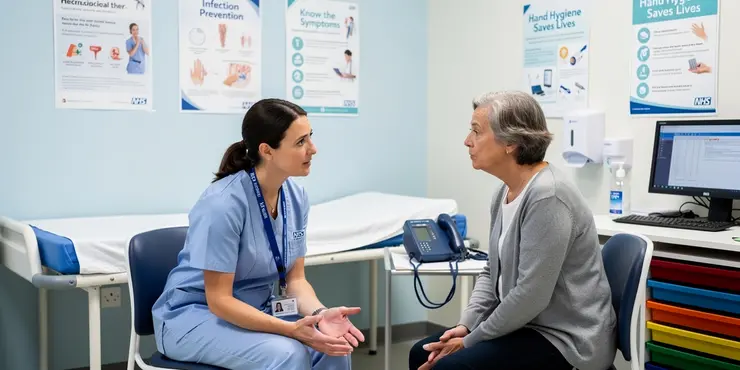
Can Nipah Virus cause neurological complications?
Relevance: 22%
-
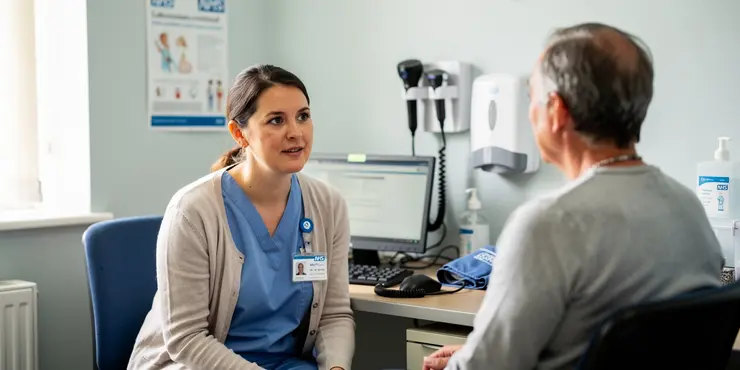
Is there a vaccine for Marburg virus?
Relevance: 22%
Understanding West Nile Virus
West Nile Virus (WNV) is a mosquito-borne virus that can lead to neurological diseases in humans. First identified in Uganda in 1937, it has since spread to various parts of the world, including Europe and North America. While the risk of contracting the virus in the UK is relatively low, it is essential to understand the available treatment options.
Symptoms and Diagnosis
The majority of people infected with West Nile Virus do not exhibit symptoms, with only about 20% developing mild symptoms such as fever, headache, body aches, and occasionally a skin rash. However, in less than 1% of cases, the virus can lead to severe neurological illnesses including encephalitis or meningitis, which can be life-threatening. Diagnosis is often based on a combination of clinical symptoms and detection of virus-specific antibodies in the blood.
Treatments for West Nile Virus
Currently, there are no specific antiviral treatments for West Nile Virus. Management of the disease primarily focuses on symptom relief and supportive care. For individuals suffering from mild symptoms, over-the-counter pain relievers such as ibuprofen or paracetamol can be used to reduce fever and alleviate pain. It is also recommended to rest and maintain adequate hydration.
In severe cases that involve neurological complications, hospitalization may be required. Patients might receive intravenous fluids, respiratory support, or medications to relieve symptoms of brain swelling. Healthcare providers may also monitor the patient closely for any additional complications such as secondary infections.
Prevention Strategies
As there is no vaccine available for West Nile Virus, prevention is mainly focused on reducing exposure to mosquito bites. Strategies include using insect repellent containing DEET, wearing long-sleeved shirts and trousers, and ensuring that windows and doors have screens to keep mosquitoes outside. Reducing standing water around homes and gardens can also help minimize mosquito breeding grounds.
Research and Developments
Research is ongoing to find effective treatments and vaccines for West Nile Virus. Scientists are exploring various antiviral compounds and immune-based therapies as potential options. Additionally, efforts are being made to develop a human vaccine, which could significantly reduce the incidence of the disease should it become more prevalent in non-endemic areas such as the UK.
Conclusion
Despite the lack of specific treatments, understanding the ways to manage West Nile Virus and reduce the risk of infection is crucial. Through preventive measures and symptomatic care, the impacts of this virus can be minimized. Staying informed about ongoing research and developments is also important for future preparedness.
Understanding West Nile Virus
West Nile Virus (WNV) is a bug bite disease. A mosquito with the virus can make people sick. It was first found in Africa in 1937, but now it's in other places, like Europe and North America. It is rare to get the virus in the UK, but we should know how to treat it.
Symptoms and Diagnosis
Most people with West Nile Virus don’t feel sick. Only about 20 out of 100 people get mild signs, like having a fever, headache, and body pain. Sometimes, they might get a skin rash too. Less than 1 in 100 people get very sick, with brain problems like encephalitis or meningitis, which can be very serious. Doctors check for the virus by looking at symptoms and testing blood for virus germs.
Treatments for West Nile Virus
There are no special medicines for West Nile Virus. Doctors mainly help by making the person feel better. People with mild signs can take medicine like ibuprofen or paracetamol for fever and pain. It is also good to rest and drink lots of water.
If someone is very sick with brain problems, they might need to stay in the hospital. They might get fluids through a drip, help with breathing, or medicine for brain swelling. Doctors will also make sure they don’t get other illnesses.
Prevention Strategies
There is no vaccine for West Nile Virus, so we must avoid mosquito bites. You can use bug spray with DEET. Wearing long sleeves and pants helps too. Make sure windows and doors have screens to stop mosquitos. Try to keep places around your house free of standing water, as mosquitoes can breed there.
Research and Developments
Scientists are working to find new treatments and vaccines for West Nile Virus. They are testing different medicines and looking at how the body's defenses can fight the virus. They are also trying to make a vaccine for people. This would help stop the virus from spreading if it becomes more common.
Conclusion
Even though there are no special treatments, knowing how to manage West Nile Virus and avoid getting it is key. By taking care and using prevention steps, we can lessen the bad effects of the virus. Keeping up with new research helps us be ready for the future.
Frequently Asked Questions
What is the primary treatment for West Nile Virus?
There is no specific antiviral treatment for West Nile Virus. Supportive care is the main treatment, which may involve hospital care with intravenous fluids, pain relief, and respiratory support as needed.
Are there antiviral medications available for treating West Nile Virus?
Currently, there are no antiviral medications specifically approved for the treatment of West Nile Virus infection.
Can over-the-counter medications help with West Nile Virus symptoms?
Yes, over-the-counter medications like acetaminophen or ibuprofen can help reduce fever and relieve pain.
Is hospitalization required for West Nile Virus infection?
Hospitalization may be necessary for patients with severe symptoms, particularly neurological ones, who require supportive care.
What supportive treatments are used for severe West Nile Virus cases?
Supportive treatments may include intravenous fluids, pain management, respiratory support, and sometimes corticosteroids to reduce swelling in the brain.
Are there any vaccines available for West Nile Virus?
As of now, a vaccine for humans is not available. Research is ongoing to develop one.
Can West Nile Virus infections be prevented with vaccination?
No human vaccine exists for West Nile Virus, so prevention focuses on avoiding mosquito bites, which transmit the virus.
How can supportive care help in West Nile Virus cases?
Supportive care helps manage symptoms, maintain hydration, and support respiratory and circulatory systems if needed.
What is the prognosis for someone with West Nile Virus?
Most people recover fully, but those with severe illness, especially involving the nervous system, may have long-term effects.
Are corticosteroids effective in treating West Nile Virus?
The use of corticosteroids is generally to manage inflammation in severe cases, but their effectiveness in West Nile Virus is not well established.
Is recovery from West Nile Virus typically complete?
Many people recover fully, but recovery can take time, particularly in severe cases, and some may experience long-term neurological effects.
Do all West Nile Virus infections require medical treatment?
No, most infections are mild and resolve without treatment. Severe cases require medical attention.
Can rehabilitation help West Nile Virus recovery?
Rehabilitation may be needed for individuals with neurological damage to help regain physical and cognitive functions.
What role do intravenous fluids play in treating West Nile Virus?
Intravenous fluids help maintain hydration, especially for patients with severe symptoms who cannot eat or drink properly.
Is pain management important in West Nile Virus cases?
Yes, managing pain is an important aspect of treatment to improve patient comfort.
What is the typical duration of West Nile Virus illness?
Mild cases last for a few days to a week, while severe cases may take weeks or longer to recover.
Can antibiotics treat West Nile Virus?
No, antibiotics are ineffective against viruses, including West Nile Virus.
Are there any experimental treatments for West Nile Virus?
Various treatments, including antiviral drugs and immunotherapies, are under research, but none are widely adopted yet.
What lifestyle changes can help with West Nile Virus recovery?
Rest, hydration, and gradual return to normal activities can support recovery from West Nile Virus.
How important is early diagnosis in West Nile Virus treatment?
Early diagnosis is crucial to managing symptoms effectively and preventing complications, particularly in severe cases.
What is the main treatment for West Nile Virus?
If someone has West Nile Virus, they usually just need rest and fluids to feel better. This means taking it easy, drinking water, and maybe having some medicine to help with pain or a fever.
If you find it hard to understand, asking for help is good. Someone you trust, like a family member or a doctor, can explain more. They can use pictures or simple words to make it clearer.
There is no special medicine to cure West Nile Virus. Doctors help people feel better with care. This care might mean staying in the hospital, getting fluids through a tube called an IV, getting medicine for pain, and help with breathing if needed.
Can you take medicine to help with West Nile Virus?
Right now, there are no special medicines to treat West Nile Virus.
Can store-bought medicine help with West Nile Virus symptoms?
If you or someone you know has West Nile Virus, you might wonder if medicine from the store can help.
West Nile Virus can make you feel sick. You might get a fever, headache, or feel very tired.
Some store-bought medicines can help you feel better:
- Pain and Fever Medicines: You can take medicine like Tylenol or Advil. They can help if you have a headache or fever.
- Rest: Get plenty of sleep. This helps your body get stronger.
- Drink Water: It is important to drink lots of water. This keeps you from getting too hot and gives you energy.
If you feel really sick or are worried, you should talk to a doctor. They can help make sure you get the best care.
Using simple tools:
- Picture Boards: Use images or symbols to show what you feel. This helps people understand how to help you.
- Help from a Friend: Ask someone you trust to read or explain the information to you.
Yes, you can use medicine like acetaminophen or ibuprofen to help lower a fever and make pain feel better.
Do you need to go to the hospital if you get West Nile Virus?
If you get West Nile Virus, you might not need to go to the hospital. Many people with West Nile Virus feel like they have the flu. They might have a fever, headache, or feel tired. Resting at home, drinking lots of water, and taking medicine for pain or fever can help.
If you feel very sick, have trouble breathing, or feel confused, you should see a doctor. Some people, like the very young, very old, or people with weak immune systems, might need to go to the hospital. If you are unsure, it's always okay to call a doctor for advice.
Sometimes, people with really bad symptoms need to stay in the hospital. This is especially true if they have problems with their brain or nerves. In the hospital, they can get extra help to feel better.
What treatments help people with bad West Nile Virus?
People with bad West Nile Virus might need extra help to get better. Here are some ways to help them:
- Hospital care: Sometimes, people need to stay in a hospital. Nurses and doctors can take good care of them.
- Medicine: Doctors might give medicine to help with pain or fever.
- Fluids: Drinking lots of water or getting fluids through a tube can help keep the body strong.
- Rest: Getting lots of sleep helps the body fight the virus.
Tools that can help:
- Use pictures to show what doctors and nurses do.
- Make a chart to track how much water the person drinks.
- Use easy sentences and simple words to explain things.
You might get special help to feel better. This can be things like:
- Getting fluids through a tube into your veins to keep you hydrated.
- Taking medicine to help with pain.
- Getting help to breathe if you need it.
- Taking medicine that helps reduce swelling in your brain.
Is there a vaccine for West Nile Virus?
Vaccines are like shields that protect us from getting sick. They are medicines that stop us from getting certain diseases.
Right now, there is no vaccine to protect people from West Nile Virus. But, we can do other things to stay safe.
Here are some ways to protect yourself:
- Wear long sleeves and pants to cover your skin.
- Use bug spray to keep mosquitoes away.
- Stay inside when there are lots of mosquitoes outside, especially at night.
- Make sure there is no still water around your home where mosquitoes can lay eggs.
Ask a grown-up for help if you have questions or if you need help to stay safe.
Right now, there is no vaccine for people. Scientists are working on making one.
If reading is hard, try using tools like audiobooks or ask someone to read it to you.
Remember, it is okay to ask for help if you need it.
Can we stop West Nile Virus with a vaccine?
Is there a shot to keep people from getting West Nile Virus?
Right now, there is no vaccine for people. But you can still protect yourself from the virus.
Here are some tips to stay safe:
- Use bug spray when you go outside. This helps keep mosquitoes away.
- Wear long sleeves and pants to cover your skin.
- Stay indoors when mosquitoes are most active, like at dawn and dusk.
- Make sure windows have screens to keep mosquitoes out.
If you want more help or tools to understand, you can:
- Ask a friend or family member to read with you.
- Use pictures or drawings to explain things.
- Find simple videos about West Nile Virus online.
There is no shot to stop people from getting West Nile Virus. To stay safe, it is important to try not to get bitten by mosquitoes because they carry the virus.
Here are some ways to avoid mosquito bites:
- Use bug spray on your skin.
- Wear long sleeves and pants when you are outside.
- Stay indoors when mosquitoes are most active, like early morning or evening.
- Use screens on windows and doors to keep mosquitoes out.
Ask a grown-up to help if you need it. Remember, these steps can help keep you safe from the virus.
How can supportive care help in West Nile Virus cases?
West Nile Virus is a virus that can make you sick. Supportive care means getting help for how you feel. This help can make you feel better if you have the virus.
If you have West Nile Virus, you can:
- Drink lots of water.
- Rest and sleep a lot.
- Take medicine for pain or fever, like paracetamol.
Ask a doctor or nurse for help. They know what to do to make you feel better.
Supportive care helps you feel better. It takes care of symptoms, keeps you hydrated, and makes sure your breathing and blood circulation are okay if needed.
What happens if someone gets West Nile Virus?
West Nile Virus is a sickness you can get from a mosquito bite. Most people who get it feel better after a few days. Some might not even feel sick.
A few people may feel very sick and need to see a doctor. It's important to rest and drink lots of water if you feel unwell.
If you have questions, you can ask a doctor or nurse for help. They can explain what you can do to feel better.
Most people get better completely. But if someone gets very sick, especially if it affects their nerves, they might have problems that last a long time.
Do corticosteroids help treat West Nile Virus?
Corticosteroids are medicines. They help reduce swelling and pain. But, do they help with West Nile Virus? West Nile Virus is a sickness spread by mosquitoes.
Here are some tips to understand better:
- Ask your doctor. They know a lot about the virus.
- Use pictures to help understand. Look for books or videos about West Nile Virus.
- Talk to someone who knows about medicines. They can give you tips.
Corticosteroids are special medicines that doctors use to help with swelling when it gets really bad. But we don't really know if they help with West Nile Virus.
Do people get better after having West Nile Virus?
Some people can get better after having West Nile Virus.
But some people might still feel sick or tired for a long time.
If you don't feel better, ask a doctor for help.
You can use pictures or ask someone to read with you to help understand more.
Many people get better completely. But getting better can take a long time, especially if they were very sick. Some people might have brain problems that last a long time.
Do you need to see a doctor for West Nile Virus?
You might not feel sick if you have West Nile Virus. Sometimes people feel fine and don't need any help.
If you feel very sick, like having a high fever or bad headaches, you should see a doctor.
Ask an adult to help you get to the doctor. You can also use a picture or a story to help understand how you feel.
No, most infections are not serious. They get better on their own without needing help from a doctor. But if someone is very sick, they should see a doctor.
Can therapy help people get better from West Nile Virus?
West Nile Virus is a sickness people can get from mosquitoes. Sometimes, it can make people feel very sick. They might need help to get better.
Therapy can help:
- Physical Therapy: Helps the body get strong again.
- Speech Therapy: Helps if talking is hard.
- Occupational Therapy: Helps with doing everyday things.
Talk to a doctor if someone is sick. They can say what help is needed. Family and friends can also be there to support.
Some people have damage in their brain or nerves that makes it hard to move or think. They might need special help to get better.
How do IV fluids help people sick with West Nile Virus?
IV fluids give your body water when you can't drink or eat well. This helps you stay healthy and strong.
Is it important to help with pain if you have West Nile Virus?
People with West Nile Virus can feel pain. It is important to help them feel better.
Here are some ways to help with pain:
- Talk to a doctor about medicine that can help.
- Get plenty of rest to help your body heal.
- Use a warm cloth or heating pad on sore areas.
- Try relaxation exercises like deep breathing.
Yes, helping with pain is important. It makes people feel better.
How long does West Nile Virus make you sick?
Mild cases get better in a few days to a week. Severe cases take longer, maybe weeks.
Can antibiotics help with West Nile Virus?
Antibiotics are medicine that fight bacteria. West Nile Virus is caused by a virus, not bacteria. So antibiotics do not help treat West Nile Virus.
If you get sick with West Nile Virus, it's important to rest, drink water, and see a doctor. The doctor can give you advice and help you feel better.
To make reading easier, you can use tools like audiobooks, or ask someone to read with you. Drawing pictures of what you read can also help you understand better.
No, antibiotics do not work on viruses like West Nile Virus.
Are there new ways to help people with West Nile Virus?
Doctors are trying different medicines to help treat people. These include medicines that fight viruses and other treatments that help the body's defenses. But right now, these are still being tested and not many people use them yet.
How can I get better from West Nile Virus?
Here are some ways to feel better:
- Rest a lot. Sleep helps you heal.
- Drink plenty of water and clear drinks. This helps your body stay strong.
- Eat healthy food. Fruits and vegetables help your body fight the virus.
- Listen to your doctor. They know how to help you get better.
It can also help to
- Ask a friend or family member to help you with things.
- Use a calendar to remember when to take medicine.
Get lots of rest, drink plenty of water, and slowly go back to your normal activities to help you feel better from West Nile Virus.
Why is it important to know early if someone has West Nile Virus?
It is important to find out quickly if someone has West Nile Virus. It helps doctors give the right care. Early help can make people feel better faster.
If you or someone you know feels sick and might have West Nile Virus, see a doctor soon.
Using picture cards or speaking with a friend can help you explain how you feel.
Finding out about a problem early is important. It helps to look after symptoms better and stop things from getting worse, especially if the problem is big.
Useful Links
This website offers general information and is not a substitute for professional advice.
Always seek guidance from qualified professionals.
If you have any medical concerns or need urgent help, contact a healthcare professional or emergency services immediately.
Some of this content was generated with AI assistance. We’ve done our best to keep it accurate, helpful, and human-friendly.
- Ergsy carfully checks the information in the videos we provide here.
- Videos shown by Youtube after a video has completed, have NOT been reviewed by ERGSY.
- To view, click the arrow in centre of video.
- Most of the videos you find here will have subtitles and/or closed captions available.
- You may need to turn these on, and choose your preferred language.
- Go to the video you'd like to watch.
- If closed captions (CC) are available, settings will be visible on the bottom right of the video player.
- To turn on Captions, click settings .
- To turn off Captions, click settings again.
More Items From Ergsy search
-

Are there treatments for West Nile Virus?
Relevance: 100%
-

What is West Nile Virus?
Relevance: 91%
-

What is West Nile Virus?
Relevance: 89%
-

Is there a vaccine for West Nile Virus?
Relevance: 89%
-

Is there a test for West Nile Virus?
Relevance: 88%
-

Can pets get West Nile Virus?
Relevance: 85%
-

How is West Nile Virus transmitted?
Relevance: 85%
-

How prevalent is West Nile virus in the UK?
Relevance: 85%
-

What are the symptoms of West Nile Virus?
Relevance: 84%
-

Which countries are affected by West Nile Virus?
Relevance: 83%
-

What should I do if I think I have West Nile Virus?
Relevance: 80%
-

Who is at risk for severe illness from West Nile Virus?
Relevance: 79%
-

How do health officials monitor West Nile Virus?
Relevance: 78%
-

How can West Nile Virus be prevented?
Relevance: 56%
-

Can mosquitoes carrying West Nile Virus be controlled?
Relevance: 54%
-

Can you get West Nile Virus more than once?
Relevance: 52%
-

What other viruses are tested for in blood donations?
Relevance: 44%
-

Are UK mosquitoes capable of transmitting Zika virus?
Relevance: 39%
-

What diseases are spread by mosquitos in the UK in 2025?
Relevance: 36%
-

When is West Nile Virus most active?
Relevance: 36%
-

Is the Marburg virus related to the Ebola virus?
Relevance: 33%
-

What is the Ebola virus?
Relevance: 31%
-

Can West Nile Virus be transmitted from person to person?
Relevance: 31%
-

Can West Nile Virus spread through blood transfusions or organ transplants?
Relevance: 28%
-
Do all mosquitoes in the UK carry diseases?
Relevance: 27%
-

Is there a cure for Nipah Virus?
Relevance: 26%
-

What is the Marburg Virus?
Relevance: 25%
-

What is Nipah Virus?
Relevance: 24%
-

What regions of the UK are most affected by mosquito-borne diseases?
Relevance: 24%
-

What research is being done on the Marburg virus?
Relevance: 24%
-

What are the symptoms of Zika virus?
Relevance: 23%
-

Can Chikungunya virus infection be treated?
Relevance: 23%
-

Can Nipah Virus cause outbreaks?
Relevance: 23%
-

Can Marburg virus disease be prevented?
Relevance: 23%
-

How is Nipah Virus diagnosed?
Relevance: 23%
-

What is Chikungunya virus infection?
Relevance: 23%
-

What is the mortality rate of Nipah Virus infection?
Relevance: 22%
-

Is Zika virus present in the UK?
Relevance: 22%
-

Can Nipah Virus cause neurological complications?
Relevance: 22%
-

Is there a vaccine for Marburg virus?
Relevance: 22%


